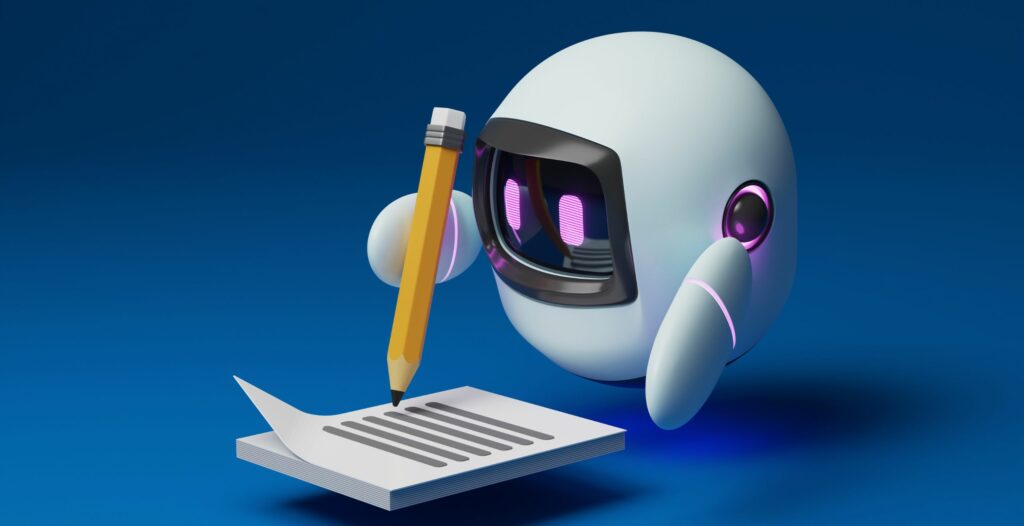Introduction
The advent of artificial intelligence has revolutionized content generation, bringing efficiency and new capabilities to the creative process. With tools such as Chat GPT, we’ve entered an era where machine learning algorithms can produce text almost indistinguishable from that written by humans. However, beneath the surface of this innovation lies a darker reality.
In this article, we explore the risks and concerns associated with AI-generated content and discuss potential solutions to mitigate these issues.
What is AI-Generated Content?
AI-generated content refers to any text, image, video, or audio that is produced by AI or machine learning algorithms without direct human authorship. Platforms utilizing artificial intelligence, like ChatGPT, have become increasingly sophisticated, capable of generating content that often mirrors human style and nuance.
These systems are trained on vast datasets, learning from patterns and information to create new content, often used for automating reports, social media posts, articles, and more.
Are you enjoying reading this blog post?
If you’re interested in having our team handle your marketing needs, please click here
Quality and Accuracy Concerns
While AI’s ability to generate content rapidly and in large volumes is impressive, it raises significant concerns regarding quality and accuracy. AI systems, like humans, are prone to errors, but these mistakes come without the same accountability. Misinformation can be inadvertently produced and spread, potentially leading to public misconceptions, panic, or distrust in reliable sources.
The situation exacerbates when AI-generated content is used in sensitive areas like news reporting or academic research, where accuracy is paramount. Therefore, relying solely on AI without human oversight risks the spread of unverified, misleading, or completely inaccurate information.
Plagiarism and Copyright Issues
Another contentious area is the violation of intellectual property rights. AI models trained on copyrighted texts, images, or music may generate content that closely resembles, or is directly derived from, the works of others without acknowledgment.
This blurs the lines between inspiration and infringement, creating a legal grey area. The current frameworks for copyright laws did not anticipate content created by non-human entities, leading to uncertainties in legal protections, ownership, and fair use doctrines.
The Dark Side of AI-Generated Content
Apart from the aforementioned technical and legal challenges, AI-generated content has ethical implications. There’s the potential for AI tools to be used maliciously, creating deepfakes, spreading propaganda, or producing targeted misinformation.
This capability in the wrong hands can sway public opinion, manipulate stock markets, or even jeopardize the democratic process. Furthermore, the lack of emotional judgment in AI can lead to the generation of insensitive or harmful content, exacerbating social issues, and potentially causing mental harm to individuals or communities.
Mitigating Risks and Solutions
To navigate these challenges, several solutions could be implemented. Establishing a robust legal framework that considers the unique nature of AI-generated content is crucial. This involves adapting copyright laws, setting clear guidelines on AI-generated content usage, and creating mechanisms to track and verify information.
Moreover, implementing a mixed human-AI content review system can significantly enhance accuracy and quality. Human oversight would compensate for AI’s lack of emotional intelligence and verify content authenticity. Additionally, developing more advanced detection tools for plagiarism and deepfakes would help uphold integrity in media and various content platforms.
Educating users and content creators on the ethical implications and potential misuse of AI is also essential. This education can promote more responsible use, helping prevent the spread of misinformation and the unethical use of AI-generated material.
The Future of AI-Generated Content
AI-generated content, despite its dark side, holds immense potential for driving innovation in numerous fields. Future advancements are expected to focus on improving AI’s emotional intelligence and ethical decision-making. Moreover, as legal and regulatory frameworks evolve, there will be clearer guidelines governing AI content generation, which will help prevent misuse while promoting creativity and efficiency.
Collaboration is key to the responsible evolution of AI content generation. This means continuous dialogue among AI developers, users, legal experts, and government bodies to ensure that advancements in this area are guided by ethical considerations and respect for intellectual property.
AI-generated content is transforming the digital landscape, offering remarkable opportunities but also presenting unprecedented risks and concerns. From quality and accuracy to ethical and legal dilemmas, the implications of AI’s capabilities are far-reaching. Mitigating these risks requires a multifaceted approach: evolving legal frameworks, enhancing AI systems with emotional intelligence, incorporating human oversight, and prioritizing education on AI ethics.
The journey ahead is complex, with stakeholders navigating uncharted territory. However, with balanced regulation, technological advancements, and ethical considerations, AI-generated content can progress responsibly, harnessing its potential while safeguarding against its darker implications.
About Author
Raised in India, I earned a Masters in Marketing from Swinburne University. Initially in Sales, I pivoted to Digital Media in 2013. Now, as the driving force behind Magnarevo, I leverage my expertise to guide branding and marketing, leading our sales and marketing teams. Keen on collaborations, I guide businesses to elevate their digital presence. Reach out at karan@magnarevo.com. Specialities: Branding, marketing strategy, digital media, ad management, website development, and analytics.
